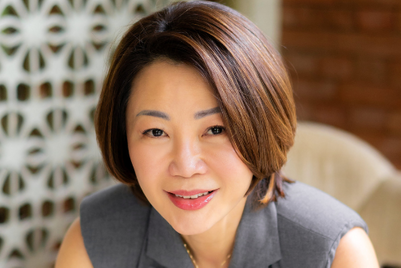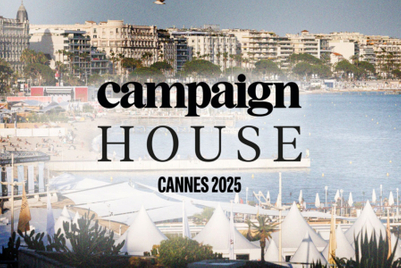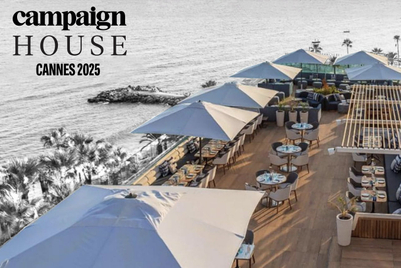.png&h=570&w=855&q=100&v=20250320&c=1)
Questions over media-buying and data practices will likely be one of the top stories of the next 12 months for Campaign, according to a panel of global editors from the brand, who spoke at Campaign House in Cannes this week.
Both Nikita Mishra, editor of Campaign Asia, and Maisie McCabe, editor of Campaign UK, highlighted scrutiny over media as a key topic of interest for readers.
Mishra pointed to the China “media rebates scandal” that started with WPP — with litigation on-going — and has been spreading elsewhere in the Chinese agency sector. “If you speak to people, they say it’s not a case of a couple of bad eggs,” Mishra said. “It’s a market reality and it’s a matter of time before others are implicated. That’s going to be a big one for us to watch.”
McCabe added: “The whole issue of proprietary media and data is interesting. I feel like a lot of clients have been sold something that is potentially not going to turn out to be quite exactly what they thought.” She suggested it could lead to further pitch activity."
Mishra and McCabe were speaking alongside Luz Corona, editor of Campaign US, and David Brown, co-editor of Campaign Canada, on a panel called “The future of advertising in flux”, moderated by Gideon Spanier, UK editor-in-chief, at Campaign House at Canopy by Hilton at The Cannes Lions International Festival of Creativity.
When it came to some of the other big stories expected to play out over the next year, Corona said her team is looking into the creator economy, Brown said his team is examining how people are using AI, and Spanier pointed to the search for a new WPP chief executive against the backdrop of the Omnicom takeover of IPG.
Other topics during the 45-minute discussion in front of a live audience included the ad industry's approach to diversity, equity and inclusion, following the election of Donald Trump as US president for a second time and a rollback of DEI at some brands.
Corona said it had impacted the US ad industry in terms of “budget” for DEI initiatives but also messaging.
Mishra added she felt there had been a notable drop in the number of Pride campaigns in the APAC region this year. “I have not got more than four or five Pride campaigns in the entire month until now. That used to be four or five campaigns coming out every day, so that quietness is absolutely deafening,” she said. “It’s shocking, the number of decades we have gone back in the last two quarters.”
Corona added that her publication had started receiving more Pride campaigns midway through June and that she saw it as the publication’s responsibility to “highlight what is going on out there. It’s a signal to readership that it’s not gone. We’re noticing it and we’re celebrating it.”
McCabe also responded to the idea that workplace culture had gone “backwards”.
She said: “The proportion of women who are creative directors, ECDs or CCOs has declined over the past two years, which I think is ridiculous and unfortunate. It feels like there’s not enough focus for me, specifically in this area. There’s evidently a specific problem in creative departments and I think it’s incumbent on us all to try and help.”
McCabe has previously written about the subject. The proportion of women in creative leadership roles has declined in the past two years, from 30.2% in 2022 to 25.6% in 2024.
The moment of the indie agency
Another big topic of discussion on the panel was the subject of indie agencies.
Brown said that the indie agency culture in Canada was incredibly strong. He shared that Toronto was one of the first markets to fold together Omnicom’s DDB, BBO and TBWA because they were getting “squeezed out by the indies”.
McCabe added that in the UK, “there’s this sense, particularly with indie agencies, that independents are where it’s at. It’s anecdotal, but people who are working in holding companies are finding it difficult and seeing the attraction of potentially moving to an independent.”
Mishra said that in Asia-Pacific, the team was seeing a “hybrid model” in which brands were opting for an independent and holding company, including the Australian telecommunications Telstra appointing holding group agency TBWA and independent agency Bear Meets Eagle on Fire. She said: “I think that model might be the future. It won’t be only indies because there will always be clients that want to scale.”
The impact of AI
The talk also turned to the topic of AI. Brown said he finds “optimistic possibility” in it: “The fixation of agencies is using AI for efficiencies and cutting and not building yet. I think we have to make that shift in the industry and start building entirely new things and using creativity to solve problems, not great ads necessarily.”
Brown also highlighted that he could see a “resurgence in creativity and craft, a human backlash to the connection”.
Mishra, meanwhile, said people were in two groups. “Some who are watching from the fringes and others who are automating things like you said, for operational efficiency, very [little] of the work is actually end-to-end, creatively automated right now.”


.jpg&h=334&w=500&q=100&v=20250320&c=1)
.jpg&h=334&w=500&q=100&v=20250320&c=1)
.jpg&h=334&w=500&q=100&v=20250320&c=1)


.png&h=334&w=500&q=100&v=20250320&c=1)
.png&h=334&w=500&q=100&v=20250320&c=1)







.jpg&h=268&w=401&q=100&v=20250320&c=1)


